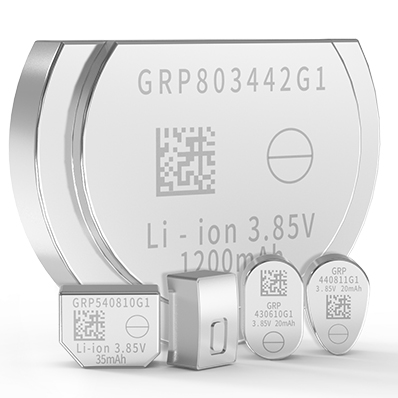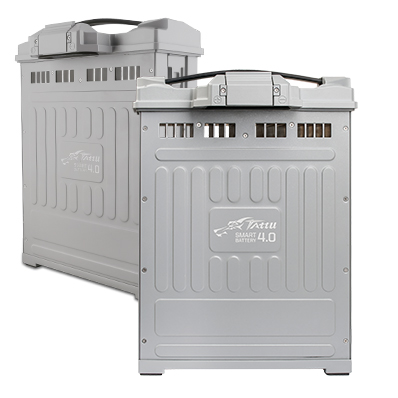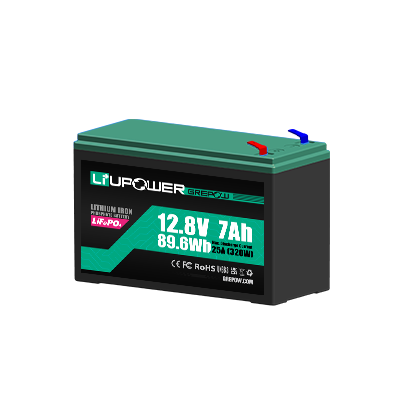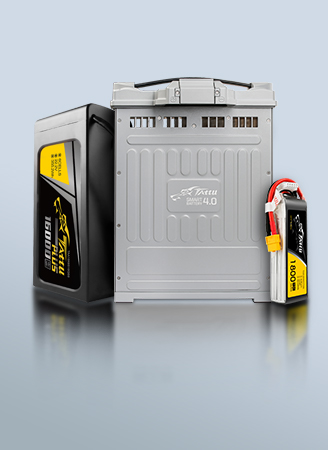What Is a UPS Battery?
Uninterruptible Power Supply (UPS) systems have become an integral part of our modern lives, ensuring a continuous and stable power supply for critical devices and systems. At the heart of these devices lies a crucial component - the UPS battery. What is a UPS battery? In this article, we will explore the ups and downs of UPS batteries, focusing on their fundamental role, differences from regular batteries, lifespan, purpose, types, and the best options available.
What is a UPS?
A UPS, or Uninterruptible Power Supply, is an electrical device that provides emergency power to connected equipment when the main power source fails or experiences voltage fluctuations beyond acceptable levels. The UPS is designed to provide a temporary power bridge, ensuring continuity of power to critical systems and preventing data loss or damage to electronic devices during unexpected power interruptions. UPS systems are widely used in homes, businesses, data centers, healthcare facilities, and other critical environments where a stable and uninterrupted power supply is essential for the proper functioning of electronic devices and systems. Key components of a UPS system include:
◆Inverter: The inverter is a crucial component that converts DC (direct current) power from the UPS battery into AC (alternating current) power, which is used by most electronic devices.
◆Battery: The battery is the energy storage component of the UPS. It stores electrical energy and releases it when the main power source is disrupted. UPS batteries are rechargeable and typically made of lead-acid or lithium-ion technology.
◆Charger: The charger replenishes the UPS battery by converting AC power from the main source into DC power for storage in the battery. This ensures that the UPS is always ready to supply power during an outage.
◆Transfer Switch: The transfer switch is responsible for monitoring the quality of the incoming power. If it detects a power failure or abnormal voltage, it swiftly transfers the power source from the main electricity grid to the UPS battery, ensuring uninterrupted power supply.
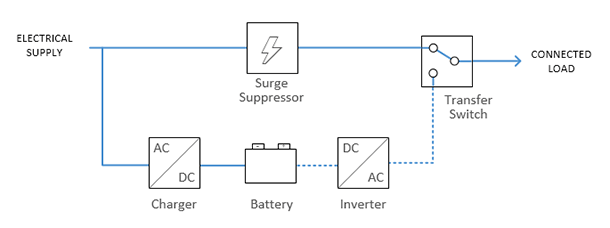
What is a UPS battery?
A UPS battery is a rechargeable energy storage device that forms a critical component of a UPS system. The primary purpose of a UPS battery is to provide a temporary power source during electrical outages or disruptions. This is crucial for protecting sensitive electronic equipment, such as computers, servers, and networking devices, from potential damage or data loss. When the main power supply fails or experiences voltage irregularities, the battery for UPS kicks in to supply power, preventing downtime and ensuring the uninterrupted operation of connected electronic devices.
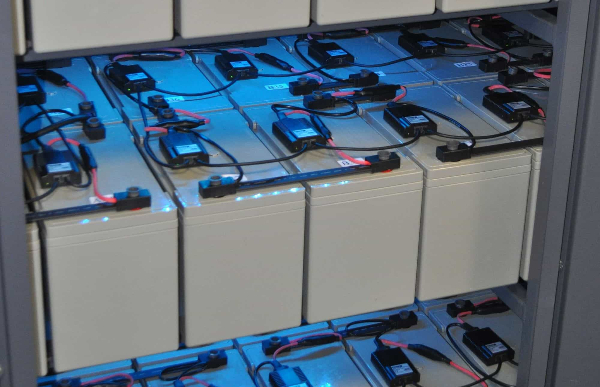
Difference between UPS and normal battery: Is UPS basically a battery?
While UPS is not merely a battery, the battery is a central and critical component of the UPS system. The primary distinction between a UPS battery and a regular battery lies in their purpose and functionality. A regular battery stores electrical energy and releases it when needed. In contrast, a UPS battery serves as a backup power source to maintain uninterrupted power during electrical interruptions. Battery for UPS batteries are designed to deliver a steady flow of power for a specific duration, allowing critical systems to operate seamlessly until the main power source is restored.
Types of batteries used for UPS
Various types of batteries are used in UPS systems, each with its advantages and disadvantages. Common types include:
◆Lead-Acid Batteries: Traditional and cost-effective, lead-acid batteries are commonly used in UPS systems. They come in two main variants: valve-regulated lead-acid (VRLA) batteries and flooded lead-acid batteries.
◆Lithium-Ion Batteries: Known for their high energy density and longer lifespan, lithium-ion batteries are becoming increasingly popular in UPS applications. They are lighter, more compact, and require less maintenance compared to lead-acid batteries.
How long do UPS batteries last?
The lifespan of a UPS battery can vary based on factors like usage, environmental conditions, and battery type. Typically, lead-acid UPS batteries have a lifespan of around three to five years. It's advisable to consider replacement once the battery reaches this age, even if it appears to be functioning normally. Lithium-ion UPS batteries often have a longer lifespan, ranging from five to ten years. However, they may still need replacement if their performance declines. Generally, when operating under ambient conditions (68° to 77° F), most UPS batteries have an expected lifespan of three to five years. However, batteries can fail much faster in conditions outside the recommended parameters for a UPS system.
Lead-Acid UPS batteries vs lithium UPS battery: the future of UPS batteries
The choice between lead-acid UPS battery and ups lithium battery involves considerations of factors such as performance, lifespan, cost, and environmental impact. The future of UPS batteries is likely to involve a continued shift toward lithium ups battery for many applications. As advancements in lithium-ion battery safety, energy density, and cost-effectiveness continue, they are becoming increasingly popular in UPS systems. The demand for compact, lightweight, and longer-lasting power solutions, especially in data centers, telecommunications, and other critical infrastructure, is driving this transition. However, lead-acid batteries will likely remain relevant in specific applications where cost is a primary concern, and the advantages of lithium-ion ups battery are not critical. Ultimately, the choice between lead-acid and lithium-ion UPS batteries will depend on the specific needs, priorities, and budget constraints of the user or organization.
Conclusion
In the world of uninterrupted power supply, the UPS battery stands as a silent guardian, ready to spring into action when the lights go out. What is a UPS battery? Understanding the nuances of UPS batteries, their types, and their importance in maintaining a seamless power supply is crucial for anyone relying on electronic systems for their work or daily activities. Whether it's a lead-acid or lithium-ion UPS battery, the right UPS battery can be the key to keeping your devices powered and your data safe during unexpected outages. As a global leader in lithium battery cell manufacturing, Grepow offers professional customization solutions for UPS battery packs and Battery Management Systems (BMS), catering to your specific application requirements. If you have any questions or needs, please feel free to contact us at info@grepow.com.
Related Articles:
DC UPS vs AC UPS: What’s the Difference?
Frequently Asked Questions for UPS Battery Replacement
Related Articles
-

High Voltage Batteries: Basics & Applications Guide
2025-02-28 -

Semi Solid State Battery vs Lifepo4 Battery: What's the Difference?
2025-01-20 -

How Drone Light Shows Are Created and Key Battery Power Requirements
2024-10-21
Related products
-
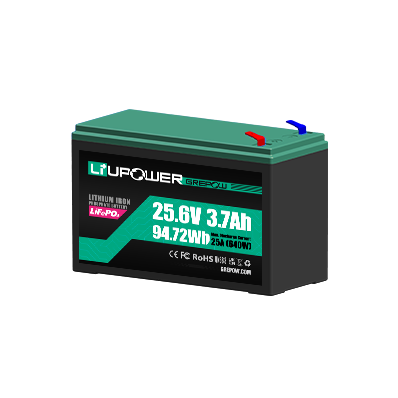
24V 3.7Ah 35C Discharge Rate Li+UPower Series UPS Modular Battery
-

24V 2.5Ah 35C Discharge Rate Li+UPower Series UPS Modular Battery







